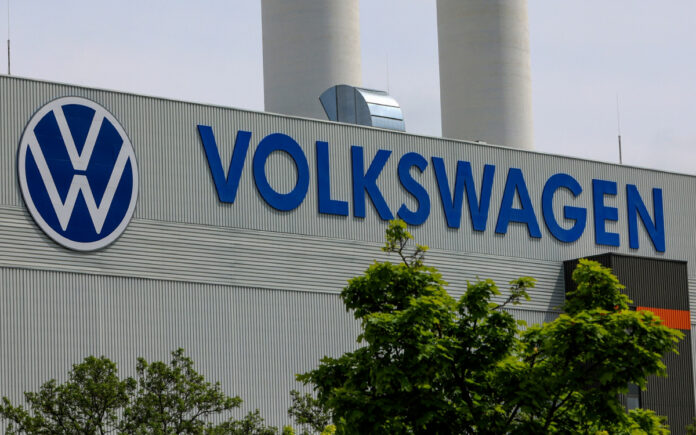Hanover: Volkswagen announced significant changes to its German operations on Friday, including the reduction of over 35,000 jobs and sharp cuts in production capacity. This agreement, following intense negotiations with unions, was hailed as a “Christmas miracle” by union leaders after 70 hours of tough talks—marking the longest negotiations in the company’s 87-year history. The deal avoids immediate site closures and layoffs, and Volkswagen appeared to abandon plans for a 10% wage cut.
The agreement, which prevented a costly strike, was welcomed by investors, with shares rising by 2.4% in extended trading. However, Volkswagen shares have fallen by 23% this year, reflecting ongoing concerns. The automaker has been in discussions with unions since September over necessary measures to compete with Chinese carmakers, address slow demand in Europe, and navigate the gradual adoption of electric vehicles.
Volkswagen reached a deal with unions that will bring big changes to its German operations, including sharp reductions in capacity and more than 35,000 future job cuts https://t.co/CGVMVISTyb pic.twitter.com/uTM4O61taX
— Reuters (@Reuters) December 21, 2024
Around 100,000 Volkswagen workers had previously staged two separate strikes, protesting against the company’s cost-cutting plans. These strikes marked the largest in Volkswagen’s history.
Volkswagen Group CEO Oliver Blume expressed confidence in the agreement, stating, “With the package of measures that has been agreed, the company has set a decisive course for its future in terms of costs, capacities and structures. We are now back in a position to successfully shape our own destiny.”
The deal is expected to save Volkswagen 15 billion euros ($15.6 billion) annually in the medium term, and the company indicated that it will have no significant impact on its 2024 guidance. Although no immediate plant closures are planned, the company will explore options for its Dresden plant and repurpose the Osnabrück site, potentially finding a buyer. Some production will shift to Mexico, and the Dresden plant will close by the end of 2025. Staff at Volkswagen’s German plants will not receive raises under a new collective wage agreement for the next four years, and some bonuses will be reduced or eliminated.
Volkswagen’s Wolfsburg plant, the company’s largest, will reduce production from four assembly lines to two. Daniela Cavallo, head of the works council, assured workers, “No site will be closed, no one will be laid off for operational reasons, and our company wage agreement will be secured for the long term.”
The final round of negotiations, which began on Monday and continued through the night in Hanover, was marked by short breaks for sleep and sustenance, including coffee and snacks. The 35,000 job cuts will be implemented over several years, with no compulsory redundancies, and will help address overcapacity. The company is also reducing its German plant network by more than 700,000 vehicles.
IG Metall chief negotiator Thorsten Groeger emphasized that the job cuts would be done “in a socially responsible manner.” However, European auto market analyst Matthias Schmidt noted, “35K job cuts on a demographic curve up to 2030 is likely not enough and over too long a time frame to address the current stagnation we are seeing across the European market.”
Also Read | US Removes $10M Reward for Syria’s New Leader After Key Talks in Damascus
Volkswagen’s largest shareholder, Porsche SE, expressed support for the deal, calling it a “significant improvement in Volkswagen’s competitiveness” but stressing the importance of implementing the changes.
The negotiations occurred amid political instability in Germany, with a snap election looming in February. Chancellor Olaf Scholz, who is trailing in the polls, welcomed the agreement, calling it a “good, socially acceptable solution” that ensures a stable future for both Volkswagen and its employees.
Also Read | Macron Pledges Full Support for Ethiopia’s Debt Restructuring Efforts
Economist Alexander Krueger suggested the deal could be a compromise that both sides can accept, but warned that competitive pressures might lead to further adjustments in the future. Historically, previous Volkswagen leaders such as Herbert Diess and Bernd Pischetsrieder struggled to push through far-reaching reforms, facing strong union opposition.
As the company navigates ongoing challenges in the European market, including rising competitive pressure and evolving consumer preferences, this agreement marks a pivotal moment in Volkswagen’s efforts to adapt and streamline its operations.



